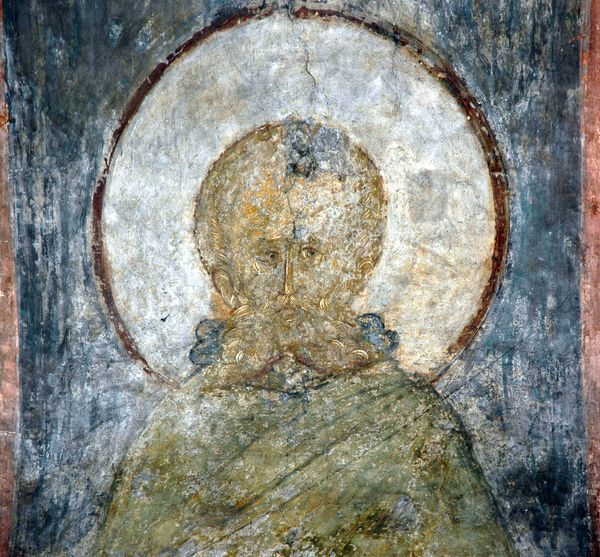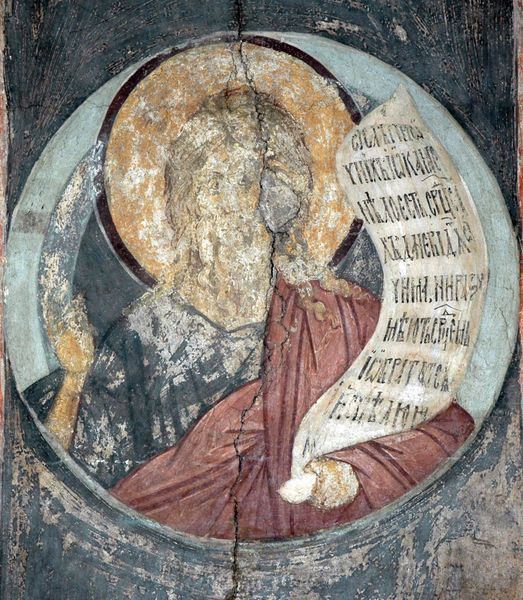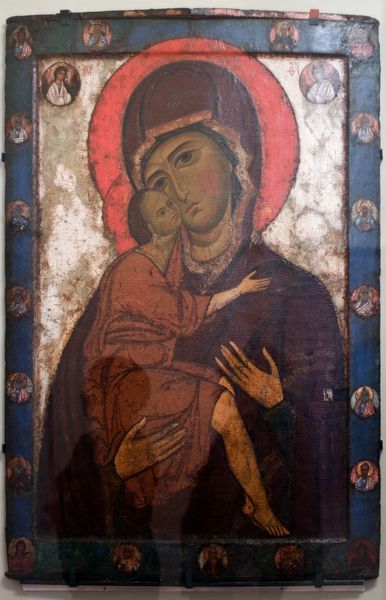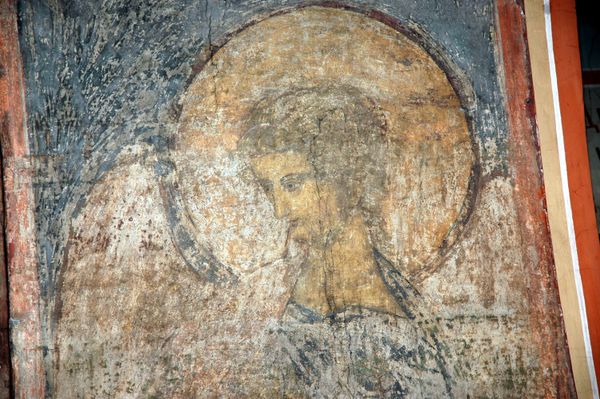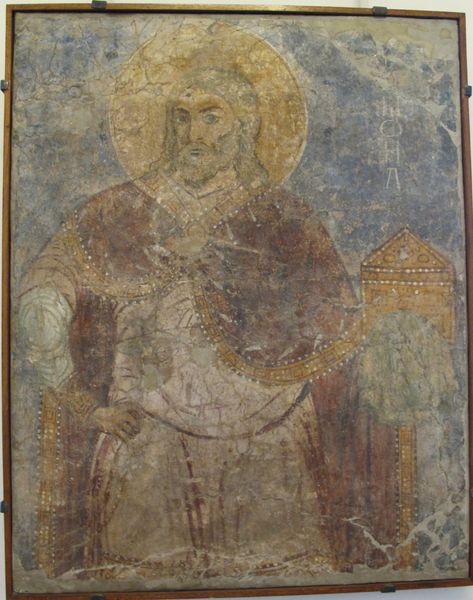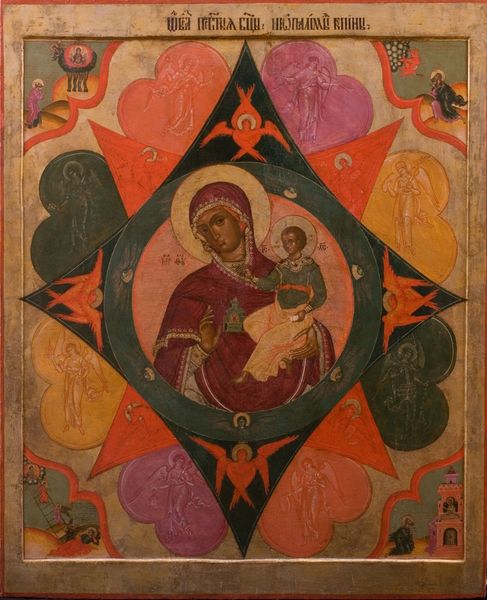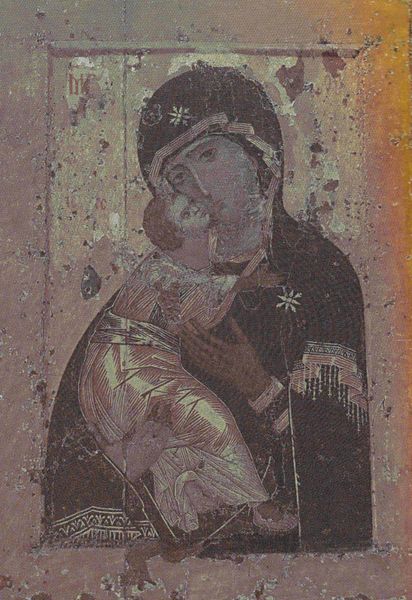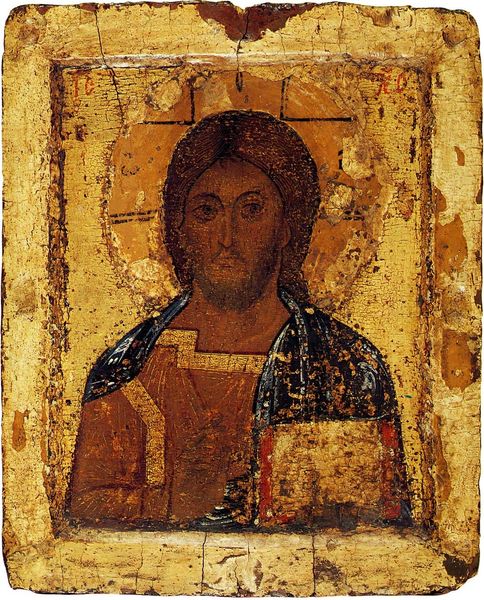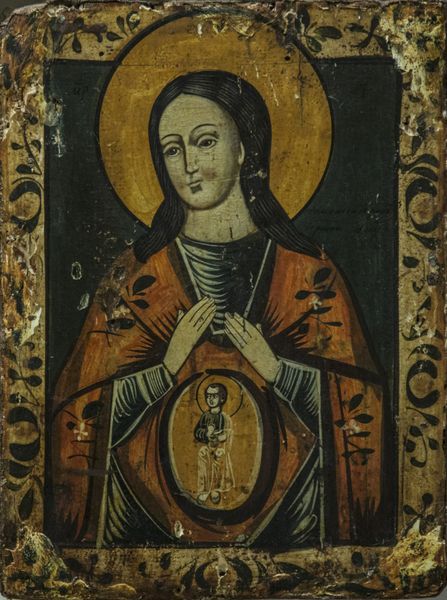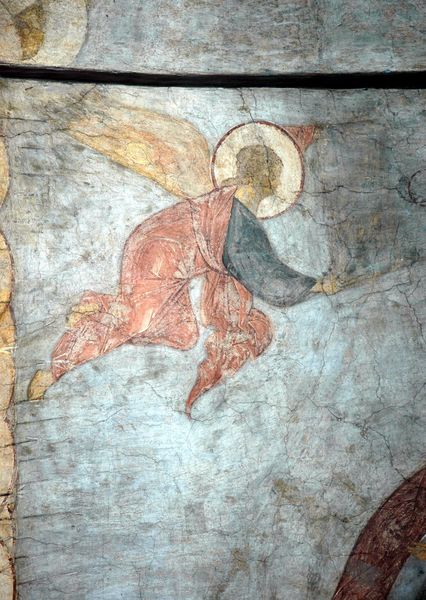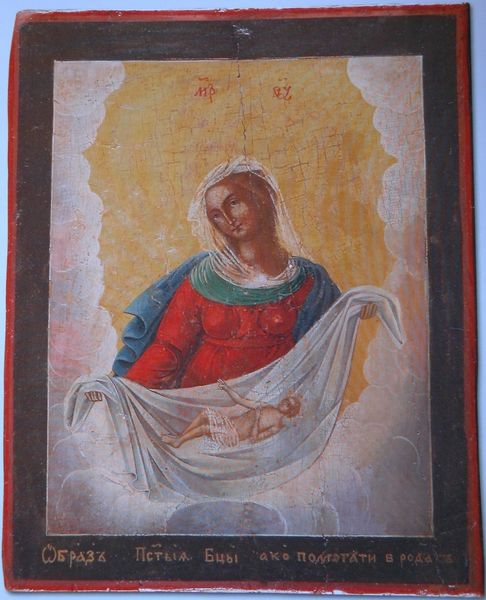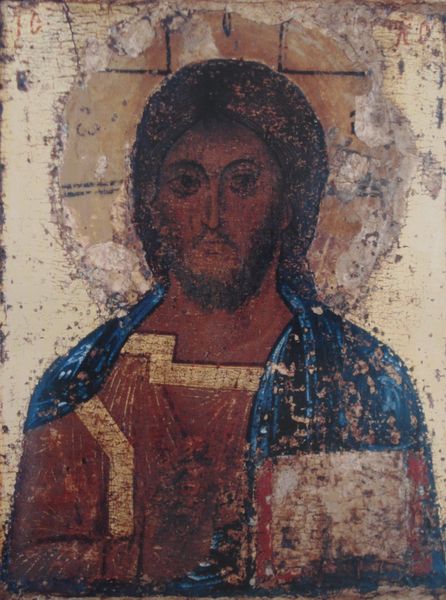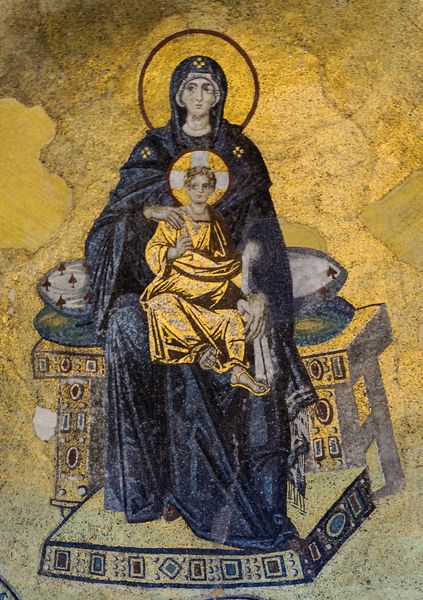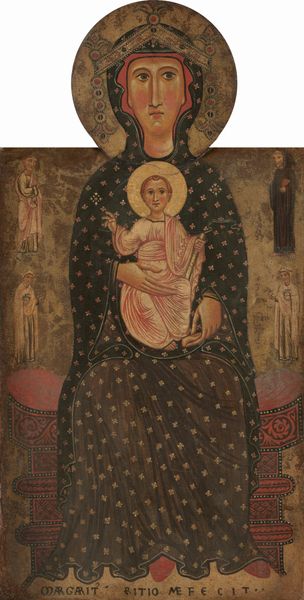
painting, fresco
#
portrait
#
byzantine-art
#
medieval
#
water colours
#
painting
#
figuration
#
fresco
#
oil painting
#
christianity
#
watercolor
#
christ
Copyright: Public domain
This fresco of St. Laurus was painted by Andrei Rublev in the late 14th or early 15th century. Note the cross he holds: it’s not merely a symbol of crucifixion, but a beacon of faith, hope, and redemption. This iconographic element reappears across epochs and geographies. Consider the ancient Roman labarum, the military standard adopted by Constantine, bearing the Chi-Rho symbol—a direct ancestor of the cross. Originally a pagan emblem, it became Christianized, mirroring the cross’s own transformation. These symbols tap into our collective unconscious. They echo through history, resurfacing in reliquaries, flags, and emblems, each iteration a new chapter in an ongoing narrative. The symbol engages viewers on a deep, subconscious level, prompting reflection on mortality, sacrifice, and the promise of salvation. The journey of such symbols is never linear. They resurface, evolve, and are imbued with new meanings. Each new era reinterprets and reinvents them, creating a rich, non-linear tapestry of cultural memory.
Comments
No comments
Be the first to comment and join the conversation on the ultimate creative platform.
